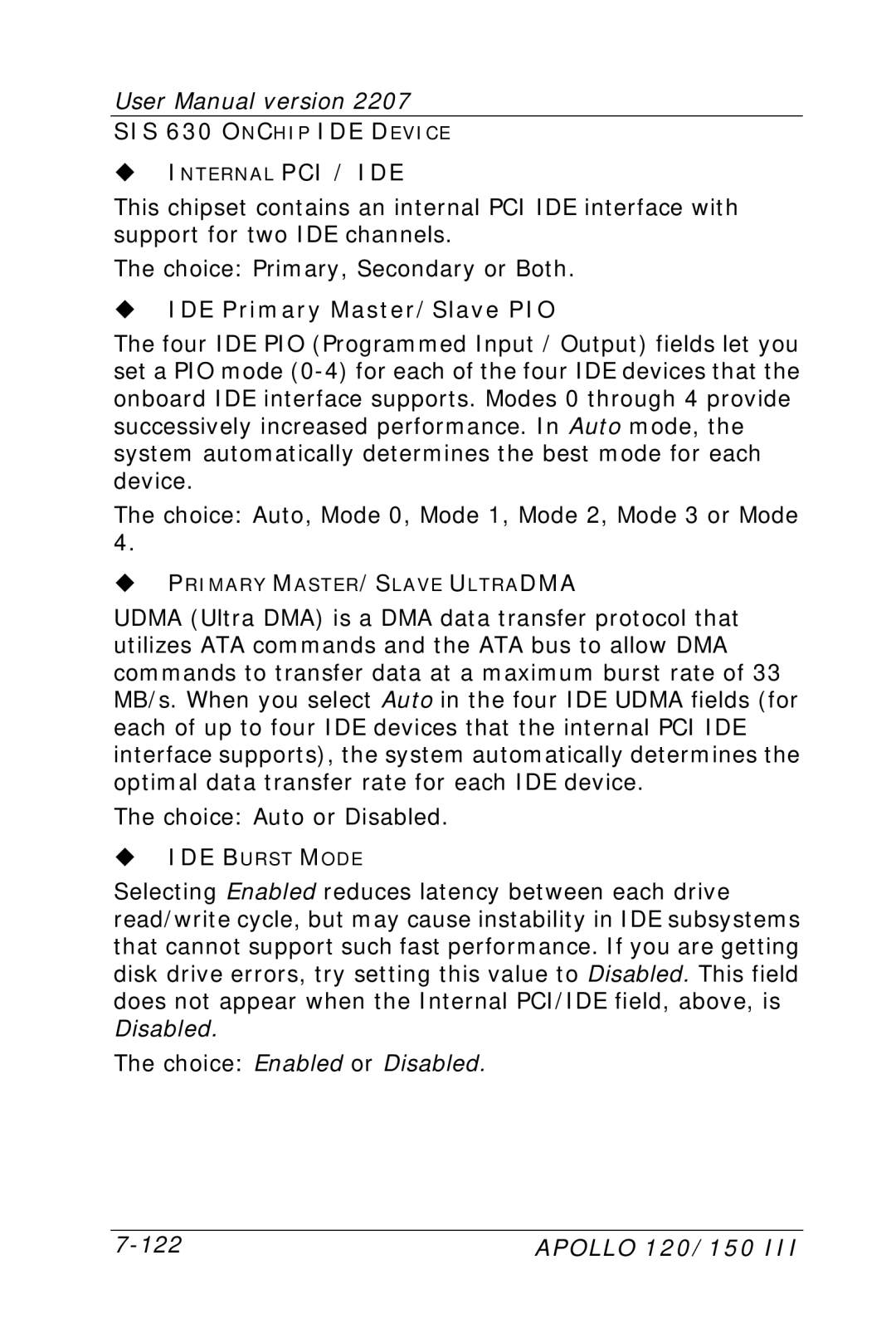
User Manual version 2207
SIS 630 ONCHIP IDE DEVICE
uINTERNAL PCI / IDE
This chipset contains an internal PCI IDE interface with support for two IDE channels.
The choice: Primary, Secondary or Both.
uIDE Primary Master/Slave PIO
The four IDE PIO (Programmed Input / Output) fields let you set a PIO mode
The choice: Auto, Mode 0, Mode 1, Mode 2, Mode 3 or Mode 4.
uPRIMARY MASTER/SLAVE ULTRADMA
UDMA (Ultra DMA) is a DMA data transfer protocol that utilizes ATA commands and the ATA bus to allow DMA commands to transfer data at a maximum burst rate of 33 MB/s. When you select Auto in the four IDE UDMA fields (for each of up to four IDE devices that the internal PCI IDE interface supports), the system automatically determines the optimal data transfer rate for each IDE device.
The choice: Auto or Disabled.
uIDE BURST MODE
Selecting Enabled reduces latency between each drive read/write cycle, but may cause instability in IDE subsystems that cannot support such fast performance. If you are getting disk drive errors, try setting this value to Disabled. This field does not appear when the Internal PCI/IDE field, above, is Disabled.
The choice: Enabled or Disabled.
APOLLO 120/150 III |
